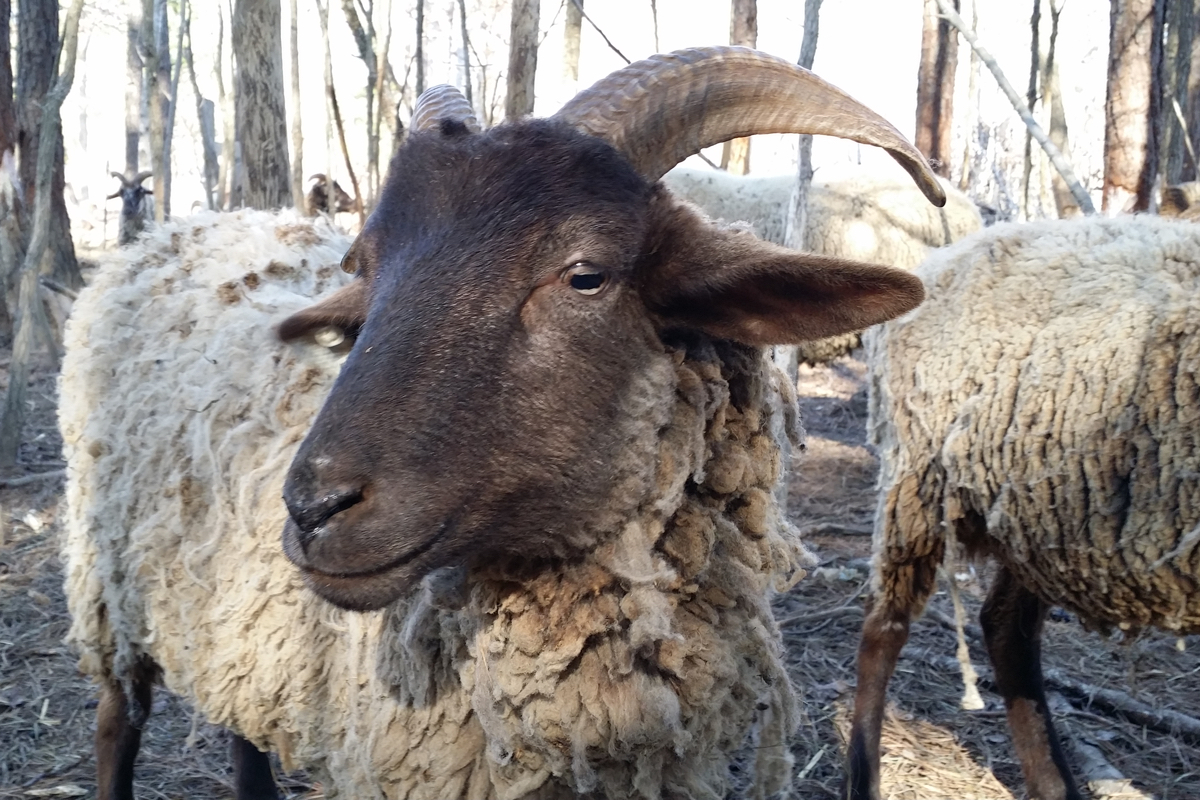(Re)introducing a new old sheep: Virginia’s Hog Island breed is officially baaaaack
Lockhart Family Farm’s Josiah Lockhart along with chefs Travis Milton, Jason Alley, and Dylan Fultineer are bringing back Hog Island sheep, and a King William venue opening later this year will give them the space to do just that.

The Hog Island sheep is a model of good sheeply qualities. Maturing in about two years, the animal is relatively hardy and self-sufficient, and what the breed lacks in body weight it makes up for by producing young well into their teen years, according to Jeannette Beranger of The Livestock Conservancy. Beranger’s an expert on the animal, and the Livestock Conservancy is the go-to resource in the preservation and breeding of the animal. Historically, the Hog Island sheep were isolated on an island off the Eastern Shore, where the breed adapted to its predator-free environment with relative ease; it was later removed from the island in 1974 after a series of damaging storms and has since been on the brink of extinction.
Until this point, the Hog Island sheep has only been raised in a few select locations, mostly living history settings, including Colonial Williamsburg and Mt. Vernon. This sheep, the only breed to be considered native to Virginia, Beranger explains, “represents a significant snapshot in history and…is the only contemporary example of genetics in the breed that no longer exist elsewhere.”
The Hog Island sheep is part of Virginia’s agricultural heritage. It’s like looking through a window into the past and finding self-reliant, well-mannered sheep with keen instincts who are also potentially delicious.
It’s the delicious part, specifically, that has Lockhart Family Farm’s Josiah Lockhart interested. Lockhart sees an avenue to restore the critically endangered breed by making it a culinary commodity, and he has the interest of three of Richmond’s best chefs: Travis Milton, Jason Alley, and Dylan Fultineer have all committed to include the Hog Island lamb on their menus at Comfort, Pasture, and Rappahannock over Easter weekend, a notoriously busy time for them, and an opportunity, Lockhart hopes, to engage the appetites of the eating public.
For Milton, the connection between raising livestock to both conserve and to sell as food makes perfect sense. But not everyone sees it that way, he explains: “The public do not have a concept of the importance of growing and then selling to restaurants…For an animal like the Hog Island sheep, it is almost solely on us to preserve it. Being a domesticated animal, there are few chances to bulk up the sheep’s numbers if they have no purpose in being domesticated, i.e. if no one is serving them, what’s the incentive to invest in growing them?” Milton first encountered the breed last summer, thanks to the work of Dr. David Shields, a leader in southern foodways preservation.
Milton knows that part of the conservation effort will mean promoting education about the breed itself. To that end, he says, “I plan on helping with the process to get the animal protected in the Slow Meat part of The Ark of Taste, and will be serving it around Easter time.”
Jeanette Beranger has been enjoying her own Hog Island lamb since November, and says, “We thought the flavor was wonderful, not too mild, not too muttony. The meat has good amount of fat, not too dry or lean.” Her recommendation for home cooks is a low, slow cooking method like a rotisserie.
Chef Milton says his preparation will embrace Louisville’s culinary history: “I will be serving Mutton, Louisville Mutton Barbecue specifically, in the style of the old Moonlight Inn,” adding, “Though Louisville is just outside of what is defined as Appalachia, it’s a very old tradition in that small area of Kentucky that is slowly getting lost and has fascinated me for quite some time.”
Lockhart Family Farm will manage the farming of the Hog Island Sheep, which will take place on Seven Springs, a historical property in King William County that’s finding new life as a dining and agritourism venue. When the venue opens to the public later this year, it will be an agritourist’s dream come true, home to farm-to-table dinners, weddings, corporate retreats, and of course a sizeable stock of Hog Island sheep.
Lockhart hopes to establish a stock of around 150 sheep by next Spring. Ellwood Thompson’s has already agreed to sell the lamb in their store when the numbers are right. The hope is that Richmond chefs can lay the groundwork and whet the appetite for consumers to crave and cook their own Hog Island lamb when the time comes.
-
Recommend this
on Facebook -

Report an error
-

Subscribe to our
Weekly Digest





There is 1 reader comment. Read it.